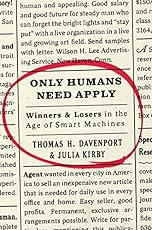

 34% off TurboTax Deluxe 2016 Tax Software Federal & State – Deal Alert
34% off TurboTax Deluxe 2016 Tax Software Federal & State – Deal Alert 47% off HyperX Cloud Gaming Headset for PC, Xbox One, PS4 (White) – Deal Alert
47% off HyperX Cloud Gaming Headset for PC, Xbox One, PS4 (White) – Deal Alert 23% off LilGadgets Premium Children’s Wireless Bluetooth Headphones with…
23% off LilGadgets Premium Children’s Wireless Bluetooth Headphones with…
Apple Pay is much more than a frictionless and secure payments service, Apple also thinks it will help accelerate the digital transformation of the banking industry.
Apple says so
Apple’s true intentions around Apple Pay are becoming easier to identify as the company goes through the Australian legal process in a disagreement with some (but not all) local banks.
In recent court filings reported by the Sydney Morning Herald, the company explained how Apple Pay-driven disruption of the banking system may help customers:
- By opening up the market to smaller lenders through the provision of an alternative to card payment systems.
- Increased competition should force better rates.
- Lenders should begin offering better promotional deals, such as air miles or cash back.
Apple points out that it has seen heightened competition in the sector in the U.S. and U.K. since launching Apple Pay. (One great example of this is the virtual Boon credit card service that’s emerging at this time).
“Apple expects that, with a range of payment cards available in [its] wallet [product] in Australia, the same increase in competition is likely to occur in Australia as has been evident in these other jurisdictions,” the submission said.
Piggyback banks
Australia’s banks are fighting Apple because they want to pay lower Apple Pay fees and they also want to create their own payment apps that will piggyback on Apple’s secure NFC-based payment system. They have lost the legal argument so far.
In the background there’s another discussion – Australia’s government wants the banks to compete more for the good of consumers. Apple Pay can help achieve this.
There are some naysayers pretend the service hasn’t been such a great success, they’re wrong.
Data points follow:
- Apple Pay users tripled between September and December 2016, Apple said this week.
- Transaction volume climbed 500 percent, year-on-year.
- Apple Pay is now available in 13 countries, and the list is growing fast.
- Over two million businesses now accept Apple Pay payments on the Web
- 58 percent of US retailers will be able to accept Apple Pay payments in the next 12-months (Boston Consulting).
- Over 300,000 U.S. vending machines now accept Apple Pay payments
- Forrester expects digital payments will reach $283 billion by 2021, up from an estimated $112 billion at the end of 2016.
Bonus schemes
One thing that retailers and Apple haven’t done a great job of yet is to link existing retailer loyalty schemes to Apple Pay payments.
However, we know the company understands that it would be good to be able to pay for products in the supermarket using Apple Pay on your Watch and have points added to your account.
Why do we know this?
Because Apple agreed a deal with the Blackhawk Network late last year, which will enable such a feature, and it’s a no-brainer to anticipate it will be made available via other loyalty networks over time.
There are still hurdles
There are challenges Apple needs to overcome, including push back from vested interests and the need to get more Apple Pay supporting payment terminals out there to help change opinion and boost use.
The latter problem is being resolved, for example, Square is aggressively promoting its Apple Pay-supporting contactless readers into more retailers.
The second challenge is tougher.
Some retailers are deeply unwilling to cede control of payments to the company, while some banks (as in Australia) are also fighting over control.
The likely impact will be introduction of numerous mobile payment solutions from multiple vendors, but this will be self-defeating.
Confusion: consolidation
Consumers will be confused by all these competing solutions and will become loyal to only a few. This will drive consolidation and force providers to combine forces.
“Banks and card issuers have a unique opportunity to simplify the purchasing experience by offering a single branded wallet solution that brings together mobile payments, money movement functionality, and account management capabilities,” said Emmett Higdon, Director of Mobile, Javelin Strategy & Research.
The difference between Apple and others is that it already enjoys such an opportunity because it already provides a clearly defined service to a clearly defined market of loyal customers, in this case, Apple users.
Loans for the rest of us
Apple’s already strong position in the mobile payments space means has a chance to provide additional fintech services, on its own or in partnership.
With billions in the bank and imminent inflation-driven interest rises to make the sector both necessary and lucrative, it is even possible to imagine Apple boosting its services income with an Apple Pay Loans service, which it could call “Loans For The Rest of Us”.
Though I doubt Apple will get into the business of loans. Unless it can deliver something unique.
Google+? If you use social media and happen to be a Google+ user, why not join AppleHolic’s Kool Aid Corner community and join the conversation as we pursue the spirit of the New Model Apple?
Got a story? Drop me a line via Twitter. I’d like it if you chose to follow me there so I can let you know when fresh items are published here first on Computerworld.














